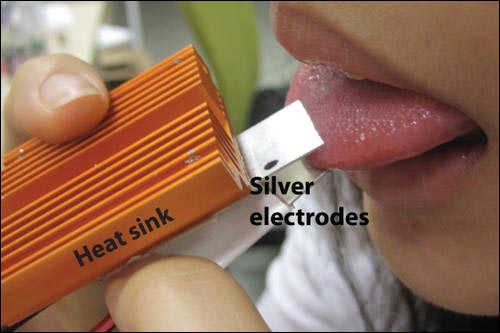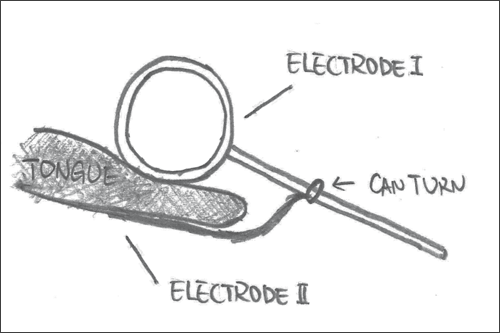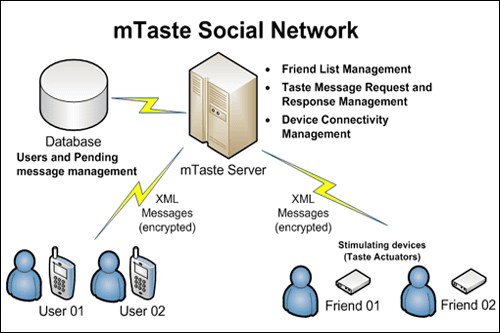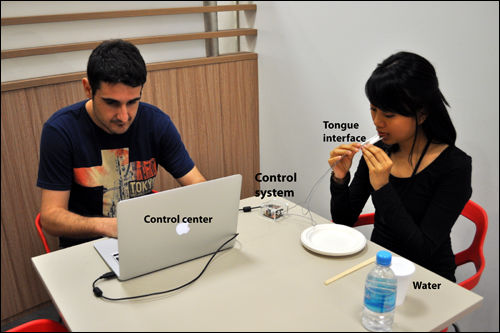A taste reproduction technology capable of virtually experiencing "taste" is developed

ByEmmiegrn
Head-up displayYaGesture motionVarious technologies capable of experiencing and experiencing virtual reality, such as, are being developed, but finally "Virtual tasteTechnique to reproduce "has appeared.
Portfolio of Nimesha Ranasinghe
http://www.nimesha.info/lollipop.html
Electrode recreates all four tastes on your tongue - 20 November 2013 - New Scientist
http://www.newscientist.com/article/mg22029444.500-electrode-recreates-all-four-tastes-on-your-tongue.html
Getting to the Bottom of a Digital Lollipop - NYTimes.com
http://bits.blogs.nytimes.com/2013/11/22/getting-to-the-bottom-of-a-digital-lollipop/
Dr. Nymeshir · Larnasin of the National University of Singapore has developed a taste reproduction system that can experience virtually "taste" by applying an electrode made of silver to the tip of the tongue and applying a weak high-frequency current to the electrode to stimulate it Developed.

Usually, humantasteThe tongue papilla on the surface of the tongueTaste bud (MIRAI)Dr. Rannasin succeeded in generating a "virtual taste" in the brain by giving a stimulus by temperature change and current change to the tongue although food comes into contact with the sensory organ such as sensory organism Did. At the present time, Dr. Rannasin's research team succeeded in reproducing "sweetness" "acidity" "salty taste" "bitterness" excluding "umami" out of the five basic tastes.

This virtual taste reproduction technology controls the change in current and temperature with digital technology and it is possible to transmit and receive taste reproduction information via the Internet. For that reason, usage methods such as allowing food companies to digitally control sampling of taste and getting taste information by licking digital terminals such as smartphones have been proposed.

In addition, Dr. Rannasin suggests that this virtual taste reproduction technology can be utilized in the medical field. For example, it is possible to experience virtual sweetness without taking sugar in diabetic patients whose intake of sugar is restricted, or to improve and regenerate the taste of cancer patients whose taste has drastically decreased by cancer chemotherapy It is thought that it is not.

Also, Dr. Jennifer Kohnis of Macquarie University who announced the results of research that "overdose of soft drink may cause Alzheimer's disease and cancer," Dr. Jennifer Konish of Dr. Rannasin of this time said that "virtual Taste simulators may be able to help push away from sugar dependence by having psychological sweetness experienced by patients showing dependence on beverages containing sugar, "he points out the usefulness of the research .
Related Posts:







